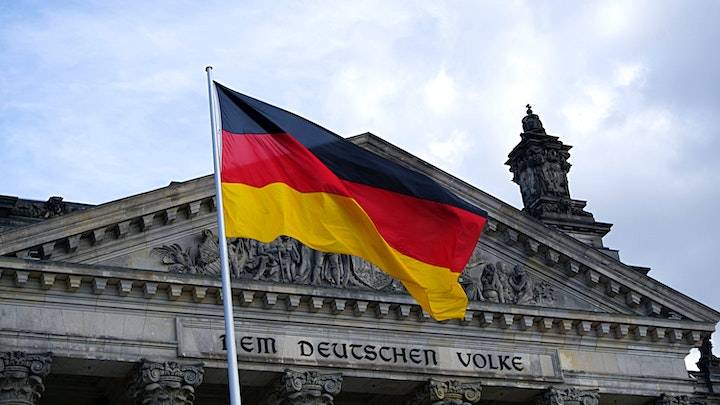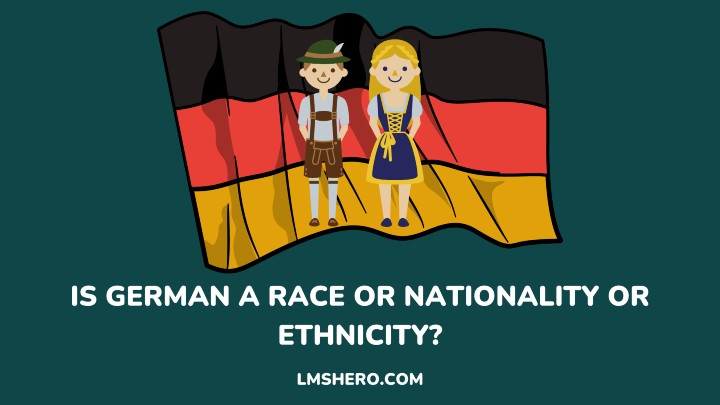With the word “German” being used to describe numerous things about people from Germany, you might find yourself asking if German refers to a race, nationality, or ethnicity.
Every citizen of the Federal Republic of Germany is a German regardless of race or ethnicity because German is a nationality.
For a very long time, German was first and foremost considered an ethnicity. Later it evolved into a nationality designed to denote a politically unified portion of that ethnic community.
In this article, you will learn why German is most times used to described to describe the nationality or ethnicity of German people and the actual race of Germans.
What race are Germans from?
Germans are of the Caucasian race. However, their skin tone differs from that of the typical Caucasian or “white person” in various ways.
Germans tend to be rather rosy in color in general. Their skin tone can also occasionally appear light, deep beige, or lobster red during the summer.
What ethnicity exists in Germany?
While ethnic Germans make up the majority of the population, there are numerous other ethnic minorities in Germany.

The Saxons, Alemanni, Frisians, Thuringii, Franks, and Baiuvarii were the ethnic groups back then. These groups were among the Germanic peoples of Western and Central Europe who first developed the German ethnicity.
Additionally, it is possible to trace the origins of the German states to Clovis I, a Frankish king. King Clovis is recognized as the one who founded the kingdom of Francia in the fifth century.
The influence of the Franks increased over the succeeding years, and by the eighth century AD, the West Germanic-speaking peoples of continental Europe were referred to as Diutisk. This means “ethnic” or connected to the people.
Germany, therefore, acknowledges four ethnicities as its national minorities. These include the German Roma and Sinti, the Frisian ethnic group, the Sorbian people, and the Danish minority.
What is the official language of the germans?
German is pronounced “Deutsch” in Germany and is derived from the word “Thiodisk,” which means “people.” Hence, the majority of the people living in Germany speak “Deutsch” as their official language.
It wasn’t until the 1520s that the Germans realized they spoke the same language. This was only possible thanks to Luther’s translation of the Bible into a form of standard German that everyone could understand.
Then, in the year 1000 A.D., a farmer from the extreme north would not have comprehended a peasant from the extreme south of now modern-day Germany. They were of Saxon, Frank, Bajuwar, etc. descent.
The 19th-century nationalistic movement focused on the union of all German-speaking people because it took the Germans nearly 300 years to finally feel like they were Deutsch.
This sentiment is embodied in the opening line of the national anthem, “Deutschland, Deutschland über alles…”
This means it isn’t that Germany is superior to everything else in the world, but rather that it ought to rank higher as an entity than Prussia, Bavaria, or Hannover.
What was Germany’s original name?
Germania was its previous name before it was given the name Germany. Germany was a component of the Holy Roman Empire from 900 to 1806.
The Federal Republic of Germany (often known as West Germany) and the German Democratic Republic were the two nations that made up Germany from 1949 until 1990.
FAQs
Where is Germany located?
One of the biggest nations located in Europe is called Germany. It extends from the North and Baltic Seas in the north to the lofty Alps in the south.
What other languages are spoken in Germany?
Other languages spoken in Germany include Sorbian and North Frisian. Both are considered minority languages.
What is the racial diversity of Germany?
The racial diversity in Germany includes German 86.3%, Romanian 1%, Polish 1%, Turkish 1.8%, Syrian 1%, and other/stateless/unspecified 8.9% (migrant languages)
Conclusion
So while German was once considered an ethnicity in the past, it is now mostly deemed as a nationality. As long as you become a citizen of Germany, you are deemed a German by nationality.
Additionally, in terms of ethnicity, Germans as an ethnicity came to be as a result of the coming together of multiple ethnical groups who once struggled to understand each other.
However, the rise of a nationalistic movement focused on the unification of all German-speaking people.
This led to the rise of an all-German ethnicity which would later be considered a nationality denoting a politically unified portion of Germans.
I hope you found this article helpful. Visit Lmshero for more information on countries with their unique ethnicity, nationality, or cultural background.
Thanks for reading.







